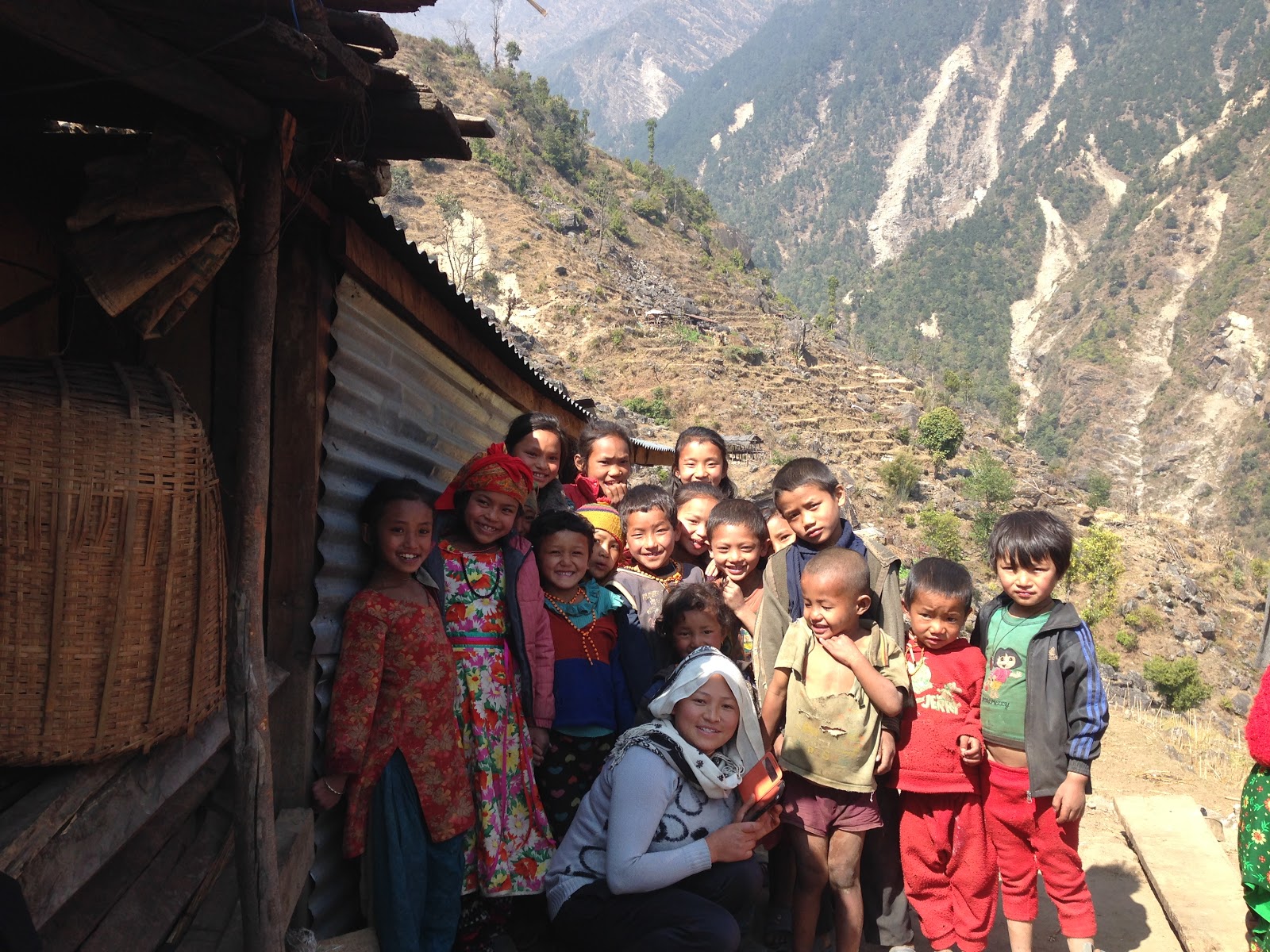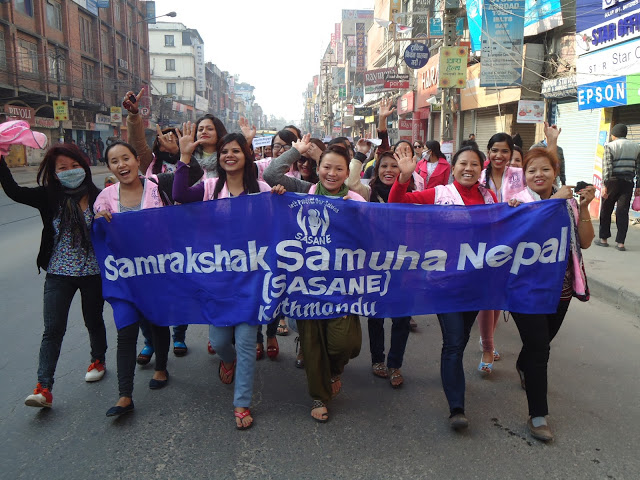Anti-human trafficking efforts in Nepal are strengthened thanks to Chevron’s Humankind Matching Gift program.
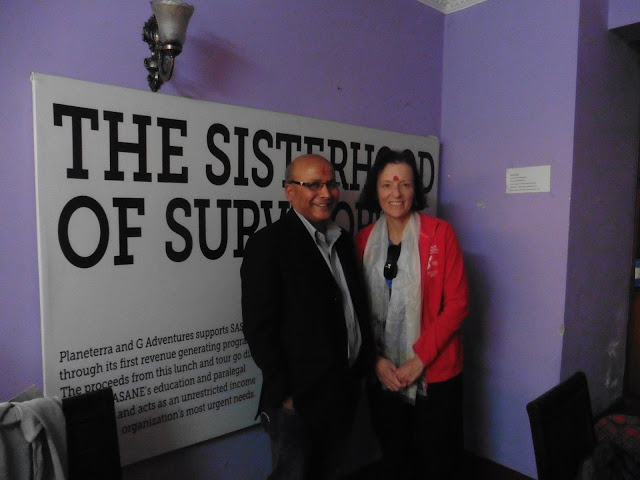
Barbara Burger – President of Chevron Technology Ventures visits SASANE Anti-trafficking program in Nepal to see the impact of Chevron’s Matching Gift Program
SASANE is a survivor-led organization using an innovative 4 tiered strategy combining paralegal training, small business development, school awareness, and community outreach to prevent and combat one of the greatest social issues of our time.
Barbara Burger, President of Chevron Technology Ventures and long-time community member of GOPhilanthropic Foundation (a US-based non-profit devoted to helping empower small grassroots organizations), facilitated a $5,000 donation through Chevron’s Humankind Matching Gift Program. Funds were initially applied in 2015 and more recently expanded on the front lines of SASANE’s anti-trafficking work offering education, human rights awareness campaigns and economic development initiatives in rural areas most prone to trafficking.
UNICEF reports 7,000 Nepali women and girls trafficked to India every year
An Innovative Approach: Training former victims to become paralegals
Despite the high number of girls trafficked from Nepal, in the past only about 10% of all survivors filed complaints against traffickers. Those who did file complaints frequently found themselves up against bureaucratic and cultural hurdles. Frequently, survivors were unable to receive immediate justice as the legal system in Nepal placed higher importance on other legal matters. In addition, fear of stigma, threats from traffickers, and lack of knowledge regarding the Nepali legal system kept survivor from filing formal complaints.
SASANE founding members believed they could support and empower women human trafficking survivors in Nepal by training survivors to become certified paralegals. As paralegals, survivors can provide access to justice, free of charge, to other women survivors of human trafficking and gender-based violence in different police stations of Nepal. SASANE paralegals employ a grassroots approach to empowering women survivors through education and tackling the systemic issues in Nepal’s legal system from the front lines. SASANE’s paralegals are re-integrated into society not only with education and job skills, but as women leaders who understand their legal rights. This program is helping to change not only each paralegal’s life, but the lives of the many women they assist every day.
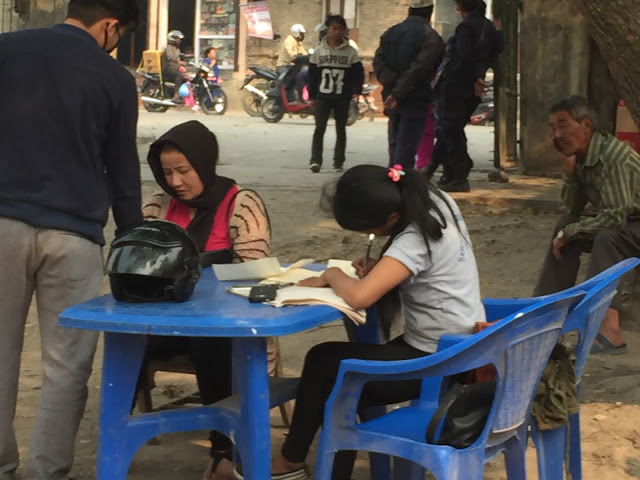
Since the inception of SASANE’s Paralegal Program in 2008:
- 205 graduates have obtained their paralegal certification
- 6368 complaints have been filed
- Paralegals have been placed in 31 police stations, 3 district courts, 1 appellate court and the Supreme Court
Seeing Chevron’s Funds at Work: Getting to the Root Cause
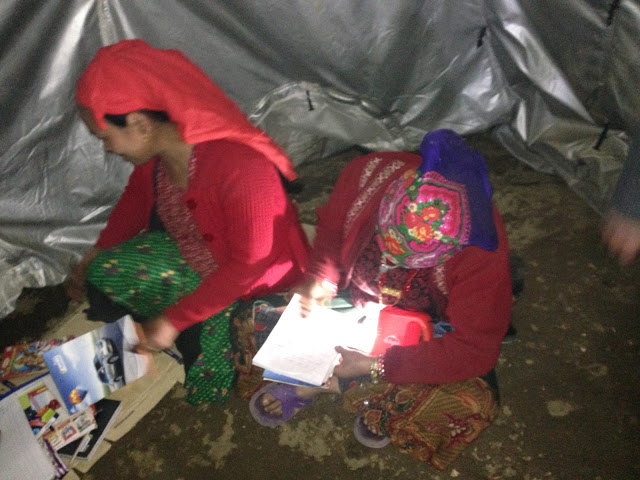
Chevron grant brings awareness and education to remote, mountainous areas of Nepal with high rates of trafficking
After nearly a decade of gathering data and tracking the areas most at risk for trafficking, SASANE has identified various remotes mountainous areas as being a major source of trafficking in Nepal. Girls and woman from these regions lack education and basic information with respect to their rights.
Since 2012, SASANE has been providing informal education and awareness classes in the remote villages near Nuwakot through its Mountain Village Education Program. It is estimated that 300 girls were trafficked from this region alone this year. In 2015, GOPhilanthropic Foundation applied Chevron’s matching grant to SASANE’s Mountain Education Program, funding essential teaching materials for seven trained SASANE paralegals living in seven separate villages in Nuwakot. Staff provided basic literacy skills and information on human rights six days a week.
The Next Steps: Chevron Match Round 2
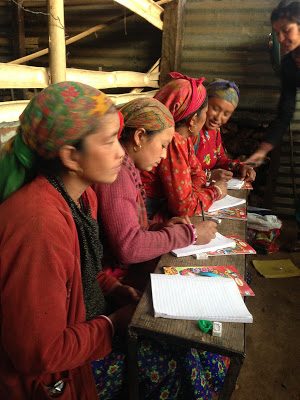 GOPhilanthropic Foundation has committed an additional $20,000 grant towards helping SASANE expand its Mountain Education Program which will include economic development initiatives offering a critical alternative to income previously generated through trafficking. Chevron’s second matching grant of $5,000k will be applied towards this expansion, supplying additional teaching materials, rent for classroom space, fees for economic training tutors and program monitoring and evaluation.
GOPhilanthropic Foundation has committed an additional $20,000 grant towards helping SASANE expand its Mountain Education Program which will include economic development initiatives offering a critical alternative to income previously generated through trafficking. Chevron’s second matching grant of $5,000k will be applied towards this expansion, supplying additional teaching materials, rent for classroom space, fees for economic training tutors and program monitoring and evaluation.
Engaging in Person
In March of this year, Barbara Burger traveled to Nepal with GOPhilanthropic Foundation to meet with Shyam Pohkrel, founder of SASANE and to learn more about their various approaches in anti-trafficking. While SASANE’s paralegal program was successful in providing opportunities for survivors with a high school diploma, traffickers frequently target the poorest and least educated girls in the country. SASANE members sought to create a new program that could provide employment skills and opportunities to survivors that had not completed their secondary education.

Learning to make traditional Nepalese “momos”through SASANE’s Sisterhood of Survival program
SASANE’s Sisterhood of Survivors (SOS) program was designed to support female survivors of human trafficking who cannot become certified paralegals because they do not have the equivalent of a high school diploma. These survivors are the most vulnerable to re-trafficking and gender-based violence because they often have no education or job skills. The SOS program provides training to these girls in the hospitality industry through training in conversational English, culinary skills, customer engagement, accounting, and food and beverage management.
The survivors run a lunch program and momo (dumpling) making course with tourists. All the proceeds go towards supporting SASANE’s education and paralegal programs as well as providing a platform for the women to practice their English, a skill that will largely contribute to further employment opportunities in the future. Barbara was able to spend time with survivors, learn how to make momos, and deepen her understanding of the importance of education as a means of prevention and reintegration.
